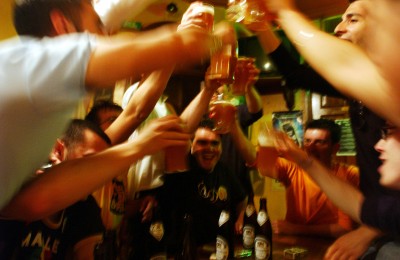Binge Drinking Claims Another Victim
Baylor University’s Sigma Chi fraternity is being sued in connection with a Texas teenager’s alleged binge drinking. Megan Helal, 19, attended a fraternity-sponsored party at a local bar and consumed 10-17 drinks in a 2-hour span. She was found unconscious and later died at the hospital. Helal’s parents are now suing the fraternity for negligence. The lawsuit alleges the party was reckless and irresponsible. It names several members of the fraternity, the fraternity’s national chapter, as well as the owner and employees at the bar where Helal was served liquor.
Megan Helal’s death is not uncommon among American college students. 44% of students attending 4-year colleges drink alcohol at the binge level or greater. Binge drinking is a pattern of excessive alcohol consumption. It is defined as consuming more than five drinks for men-and four drinks for women- in one sitting. Since 1993, the number of college students who binge drink and use drugs has remained largely the same, but the amount of drugs and alcohol consumed by college students has risen dramatically. The number of college students who meet the criteria for substance abuse and dependence is almost three times the national average.
The financial impact of binge drinking and blackouts is significant. Binge drinking alcohol can cause memory loss similar to amnesia. These periods of alcohol-related amnesia are generally referred to as blackouts. A blackout — the inability to recall events without a full loss of consciousness — means sufferers can walk, talk, drive or have sex but can’t remember any of it — creating a greater risk for car crashes, other accidents, unwanted pregnancy and STDs. A recent study estimated that on a large college campus (40,000 students or more) blackout-associated emergency department visit costs would range from $469,000 to $546,000 per year.
So why do so many college students binge drink? It has to do with the fact that binge-drinking alcohol in college is socially acceptable, almost expected. Many college students binge drink as a result of peer pressure or social expectations. In pop-culture, college is portrayed as a non-stop party. When young people go off to college falsely thinking that “everybody” is drinking and bingeing, they are more likely to binge drink in order to conform.
So what’s the risk? Obviously, binge drinking risks overdose, especially when combined with other drugs. Also, many people report engaging in high-risk behavior while binge drinking and especially during a blackout. They drive while intoxicated, get into fights, or engage in unprotected sex. Blackouts are a strong predictor of alcohol related emergency room visits.
Further, recent studies have shown that the brain is still developing through age 25. Alcohol, particularly episodes of binge drinking, affects the part of the brain that handles impulse control and decision-making. Damage to the brain early can make it hard for young people to make healthy choices about acceptable alcohol use and impulse control later in life. This can lead to many difficulties, including a higher incidence of drug and alcohol abuse and addiction.


